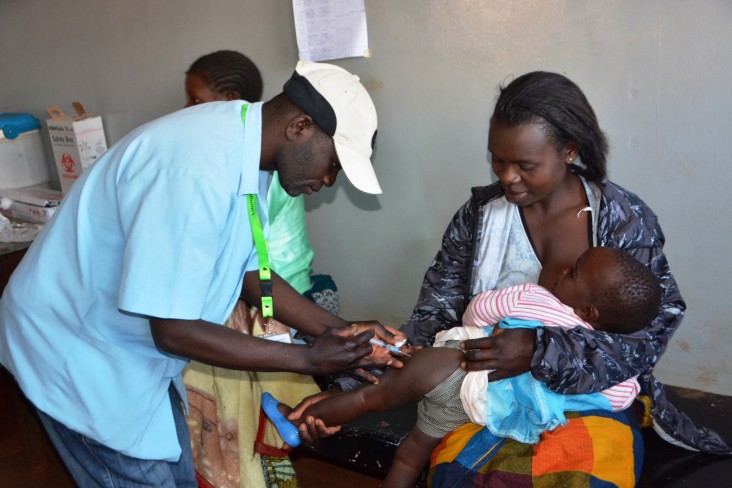
Malawi faces a range of challenges to sustainably finance and efficiently manage the delivery of high-quality health services. There is a severe shortage of adequately trained health personnel across all professional cadres, and it is difficult to train, retain, supervise, and manage existing workers within the health system. There are also critical gaps in supply chain management, information systems, and infrastructure.
Donors provide the majority of total health expenditures in Malawi, making the country’s health sector one of the most donor-dependent in the world. Securing more sustainable financing and increasing the efficiency and effectiveness of current spending through improved health sector governance is extremely important for Malawi.
IMPACT
An effective and efficient health system is necessary for improved health outcomes. As such, Health Systems Strengthening (HSS) activities are integrated throughout USAID’s health portfolio in Malawi.
The Ministry of Health (MoH) and the private sector to improve governance, management, and information systems. To address the shortage of skilled workers, USAID supports pre-service and in-service training programs for both clinical and non-clinical health workers and focuses on improving Human Resources management, supervision, and retention.
To improve quality, USAID strengthens and improves supply chains to ensure product availability; develops and implements enhanced national policies and protocols; provides technical assistance to the MoH to strengthen logistics capacity to manage commodities; and facilitates the integrated supervision, mentoring, and training of health workers.
Innovative use of technology in HSS programming results in game-changing developments for the Malawi health sector. For example, USAID worked with the Government of Malawi to adopt a mobile phone-based supportive supervision tool. The tool provides real-time data on facility performance to stakeholders at both district and national levels, resulting in improved quality assurance.
USAID also provides technical assistance to the MoH to develop new health financing approaches that increase sustainability and efficiency. In addition, USAID provides customized financial management coaching at district and central levels, supports the District Implementation Planning process, and trains managers to effectively use data in decision-making. All these activities improve the planning, management, and use of funds in the health system.







Comment
Make a general inquiry or suggest an improvement.